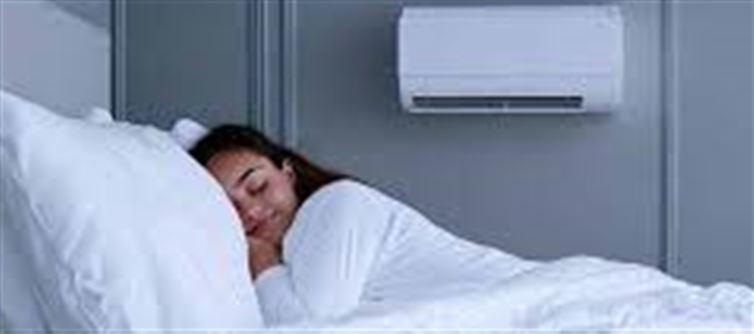
Sleeping in an air-conditioned (AC) room all night can offer relief from heat and humidity, especially in warm climates like Chennai. However, prolonged exposure to AC throughout the night may have health implications if not managed properly. Here's an overview of potential risks and how to mitigate them:
1. Dryness and Dehydration
AC units reduce humidity, which can lead to dry skin, eyes, and nasal passages. This dryness may cause irritation, discomfort, and increase susceptibility to respiratory infections. To counteract these effects, consider using a humidifier in your bedroom and staying well-hydrated throughout the day.
2. Respiratory Issues
Sleeping in an AC environment can exacerbate respiratory problems, especially if the unit is not well-maintained. Dust, mold, and other allergens can accumulate in AC filters and ducts, potentially leading to allergies or asthma flare-ups. Regular cleaning and maintenance of your AC system are crucial to ensure good air quality.
3. Muscle and Joint Discomfort
Prolonged exposure to cold air from AC can cause muscle stiffness and joint pain, particularly in individuals with pre-existing conditions like arthritis. Maintaining a moderate room temperature and using appropriate bedding can help alleviate these issues.
4. Sleep Disruption
While AC can create a comfortable sleeping environment, excessively low temperatures or noise from the unit may disrupt sleep patterns. Sudden temperature drops can cause restlessness or frequent awakenings. Setting the AC to a comfortable temperature and ensuring it operates quietly can promote better sleep quality.
5. Energy Consumption and Environmental Impact
Running the AC all night increases energy consumption, leading to higher electricity bills and a larger carbon footprint. To minimize environmental impact, use energy-efficient settings, set timers to turn off the AC during cooler parts of the night, and ensure your home is well-insulated to retain cool air.
Sleeping with the AC on all night is not inherently bad for health, but it's essential to use it wisely. Regular maintenance, moderate temperature settings, and complementary measures like humidifiers can help mitigate potential health risks. Balancing comfort with health considerations ensures restful sleep without adverse effects..jpg)




 click and follow Indiaherald WhatsApp channel
click and follow Indiaherald WhatsApp channel